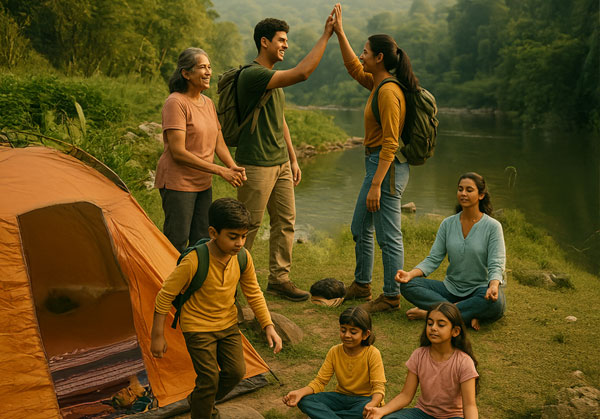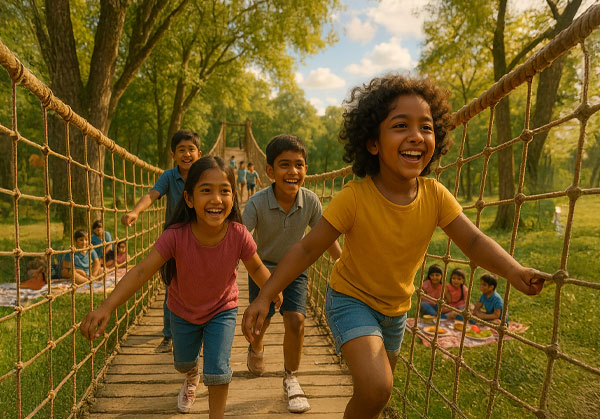
Relationship Excursion
Explore, Experience & Realize most important aspects of life- “Relationship
At Life Adve, we believe in the transformative power of nature and shared adventure. Our nature and activity-based relationship excursions are designed to immerse individuals in the great outdoors, encouraging exploration, teamwork, and hands-on experiences that inspire personal growth. By stepping away from digital distractions and reconnecting with the natural world, participants cultivate stronger, healthier, and more meaningful relationships — with themselves, others, and the environment around them.
WHAT YOU CAN LEARN
Our Popular Programs
Don’t hesitate, contact us for better help and services. Explore all our programs
OUR EVENTS
Our Upcoming Events & Excursions
Don’t hesitate, contact us for better help and services. View Previous Events.
Yes! Iam Interested
Please send me complete details on my What'sApp Number given below
"In this video, you'll discover the unique Relationship Excursions we regularly organize to help individuals connect, grow, and thrive through shared outdoor experiences."
Best at feature
Why Choose Life Adve

About Life Adve
At Life Adve, we are dedicated to fostering personal growth and stronger relationships through the power of nature and shared experiences. Our unique nature and activity-based excursions are crafted to help individuals disconnect from digital noise and reconnect with what truly matters. By encouraging exploration, teamwork, and real-world interaction, we create opportunities for participants to build meaningful connections—with themselves, with others, and with the natural world. Whether it's through a guided adventure or a reflective moment in the outdoors, every Life Adve journey is a step toward a healthier, more balanced life.
Our Services
If you dream about getting educated from one of the top universities then definitely check these series of programs. Learn from the experts and faculty who are always engaged in teaching and research to push the boundaries.


Our Programs
If you dream about getting educated from one of the top universities then definitely check these series of programs. Learn from the experts and faculty who are always engaged in teaching and research to push the boundaries.
Book an Appoinment
Yes! You can easily book an online appointment with our expert panel of psychologists.

Why Life Adve
Our Happy Families
OUR TEAM
We are changing the way how people explore nature and relationships!

Vikas Gupta
Founder & CEO Life Adve

Avinash Deoskar
Director at Adventure Academy

Dr Jayashree Shiwalkar
Development Pediatrician at SWAYAM

Dr. Kanak Sharma
Founder / Director at Mind Over Matter

Mrs. Bimla Negi Deoskar
Director at Adveture Academy

Nishant Seth
Passionate Trekkar, Seasoned Entrepreneur and Marketing Strategist

Aonkita Sur
Psychologist

Sharath Chandra
RCI trainee & counselling psychologist.
















